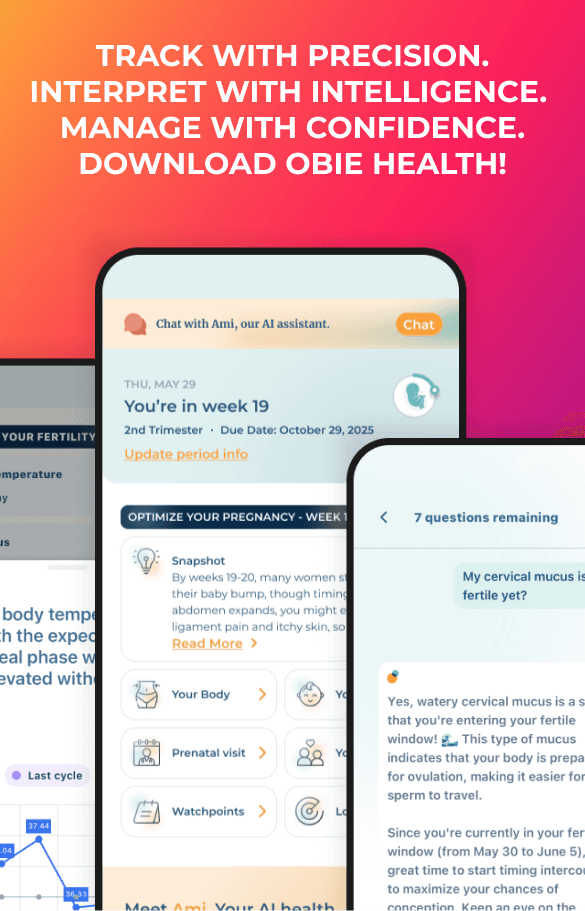Impact of Postpartum Hormonal Fluctuations on Mental and Physical Health
Obie Editorial Team

Bringing a baby into the world is a major physical and emotional shift, and the hormonal changes that follow childbirth play a key role in how you feel during recovery. These fluctuations can affect mood, energy levels, and overall well-being, making it essential to understand what’s happening in your body and how to support yourself during this time.
What Hormonal Changes Occur?
- Estrogen & Progesterone Drop: These hormones, which were elevated during pregnancy, decrease rapidly after birth. This sudden drop can contribute to mood swings, irritability, and fatigue. Some women experience the "baby blues," while others may develop postpartum depression (PPD), which requires medical attention.
- Oxytocin Surge: Often called the "love hormone," oxytocin is released in high amounts during breastfeeding and skin-to-skin contact, helping with bonding and emotional connection. However, it can also heighten emotions and sensitivity.
- Cortisol & Stress Response: Adjusting to life with a newborn can lead to increased cortisol (the stress hormone), which can impact sleep, mood, and energy levels. Chronic stress may slow postpartum healing and affect overall well-being.
- Prolactin Increase (for breastfeeding mothers): Prolactin supports milk production and may have a calming effect. However, it can also contribute to fatigue.
How to Support Your Hormonal Balance
- Prioritize Sleep: Sleep deprivation can make hormonal imbalances worse. Try to rest when your baby sleeps, and consider asking a partner or family member to take shifts so you can get longer rest periods.
- Eat a Balanced Diet: Healthy fats (avocados, nuts, fish), proteins, and whole grains help stabilize blood sugar and support hormone regulation. Avoid excess caffeine and sugar, which can lead to energy crashes.
- Stay Active: Light postpartum-friendly exercise like walking or yoga can help regulate stress hormones, improve circulation, and boost mood through endorphin release.
- Seek Emotional Support: Postpartum is a vulnerable time. Surround yourself with supportive friends, family, or join a postpartum support group. If you’re struggling with mood changes beyond the baby blues, reach out to a healthcare provider for help.
Your body is working hard to rebalance hormones after pregnancy. If you experience ongoing mood swings, extreme fatigue, or symptoms of postpartum depression, seeking professional support can be crucial for recovery.
Source:
Bloch, M., et al. (2003). Effects of estrogen and progesterone on mood during the postpartum period. Journal of Clinical Endocrinology & Metabolism.









